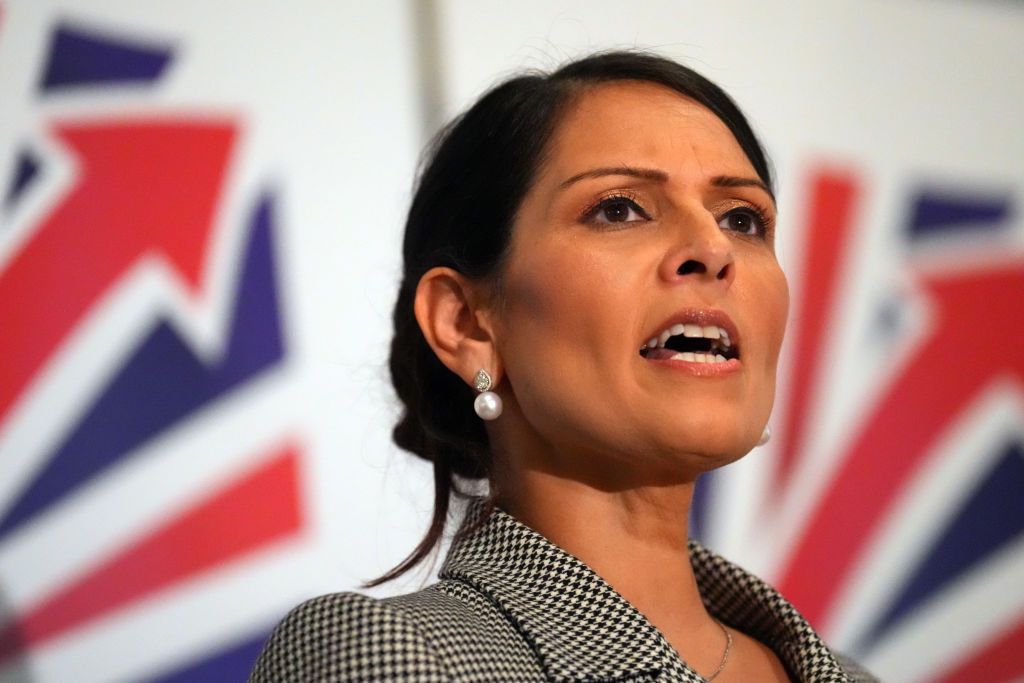During the early days of the Gaza crisis, there was an unofficial refrain doing the rounds in the Foreign Office: ‘Foreign policy doesn’t win votes – but it can lose them.’ In recent days, the same could be said of Ukraine’s peace negotiations. The drama between Presidents Trump and Zelensky which played out in the Oval Office on Friday horrified Westminster. Both Keir Starmer and Kemi Badenoch were quick to signal their support for Zelensky, aware that – three years after the war with Russia began – public support for Ukraine remains rock solid.
It poses a difficulty for Nigel Farage
That poses a difficulty for Nigel Farage. The Reform leader – who is keen to make much of his friendship with Trump – waited until Saturday morning to declare that the Oval Office argument was ‘regrettable’ and ‘will make Putin feel like the winner’. Appearing on LBC today, he said that Zelensky ‘played it very badly’, saying: ‘I wouldn’t expect a guest to be rude to me in my own house’. He suggested that the Ukrainian leader should have ‘thought about’ wearing a suit and appeared to be reluctant to criticise Trump and his Vice President JD Vance, acknowledging only that they ‘bit back.’
Rival parties have been quick to jump on Farage’s comments. Leading the charge is Priti Patel, the Shadow Foreign Secretary. The pair have known each other for twenty years, with Patel publicly describing her rival as a ‘friend’. Yet last week, in the bear pit of the Commons chamber, Farage criticised Patel’s figures in a debate on the Chagos Islands, implying she had a ‘problem with basic arithmetic and compounding.’ Today, she has delivered her own riposte, likening Farage to Jeremy Corbyn for ‘equivocating over Russia’s illegal war in Ukraine’, saying it is ‘troubling’ that he refuses to call the Ukrainian leader a ‘hero.’ She added that:
For Nigel Farage to sit there pointing the finger at Zelenskyy is both morally wrong and diplomatically counterproductive. At this uncertain and dangerous time, one would hope that MPs of all stripes would be putting our national interest first, rather than playing politics.
The irony of Patel’s statement is that she is doing exactly that: playing politics. But on Ukraine, many Tories hope it will prove to be a fruitful exercise. Farage’s stance on Russia was raised by opponents in the general election, following a BBC interview he did with Nick Robinson. Some Reform insiders acknowledge that his comments and the ensuing row did hurt the party’s ratings, with the final 14.3 per cent vote share lower than some polls had forecast. With Reform now on 25 per cent, Kemi Badenoch’s team hopes a similar row over Russia will dent their rivals’ ratings again.
Some of Patel’s shadow cabinet colleagues are reluctant to attack Reform, fearing that they risk antagonising sympathetic Tories. Clearly, on Ukraine, she and others feel safe to do so, confident that they have public support on their side. With Labour pushing similar attacks in their efforts to halt Reform’s momentum, expect to see Farage answer a lot more questions about Russia in the future.







Comments